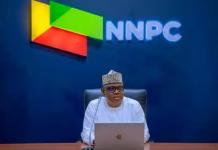While delivering the keynote address, Okon, who is the chief executive officer, International Institute of Petroleum, Energy Law and Policy, and a special adviser on fiscal strategy at the Federal Ministry of Petroleum Resources, stated that the subsidy programme was actually designed for the poor but it benefitted a few rich persons massively.
He said, “In the period when Nigeria earned close to $300bn as revenue from oil, from 2010 to 2014, we were spending approximately $7bn annually on subsidy. Worse than this was that in spite of the huge revenue inflows, we were also borrowing.”
He also bemoaned the magnitude of borrowing by the Federal Government and stressed that Nigeria might be heading towards a situation in which it would sustain its operations mostly on public debts if care is not taken.
He said: “If we continue to borrow, we will be returning to the point where we may seek debt forgiveness. This is why we are concerned about this development.”
The ex-NNPC director hailed the end of the subsidy regime and stated that the billions of dollars spent on subsidising petrol across the country would have been used to fix all the country’s refineries as well as build the Mambilla Power Plant, which has the capacity of generating about 3,000 megawatts of electricity.
Okon explained that Nigeria had been in the oil business for several decades and had seen how crude prices fluctuated over the years, adding that it was worrisome that the current fall in crude prices had taken a huge toll on the Nigerian economy.
He said, “Volatility is not new; commodity price changes are not new and, therefore, Nigeria ought to, having being an oil producer for quite some time, have an understanding of this cycle. But the question is, why is it now difficult?”
The ex-NNPC official stated that there was the need to deal with the revenue governance framework, adding that one way was the ability to create adequate buffers.









